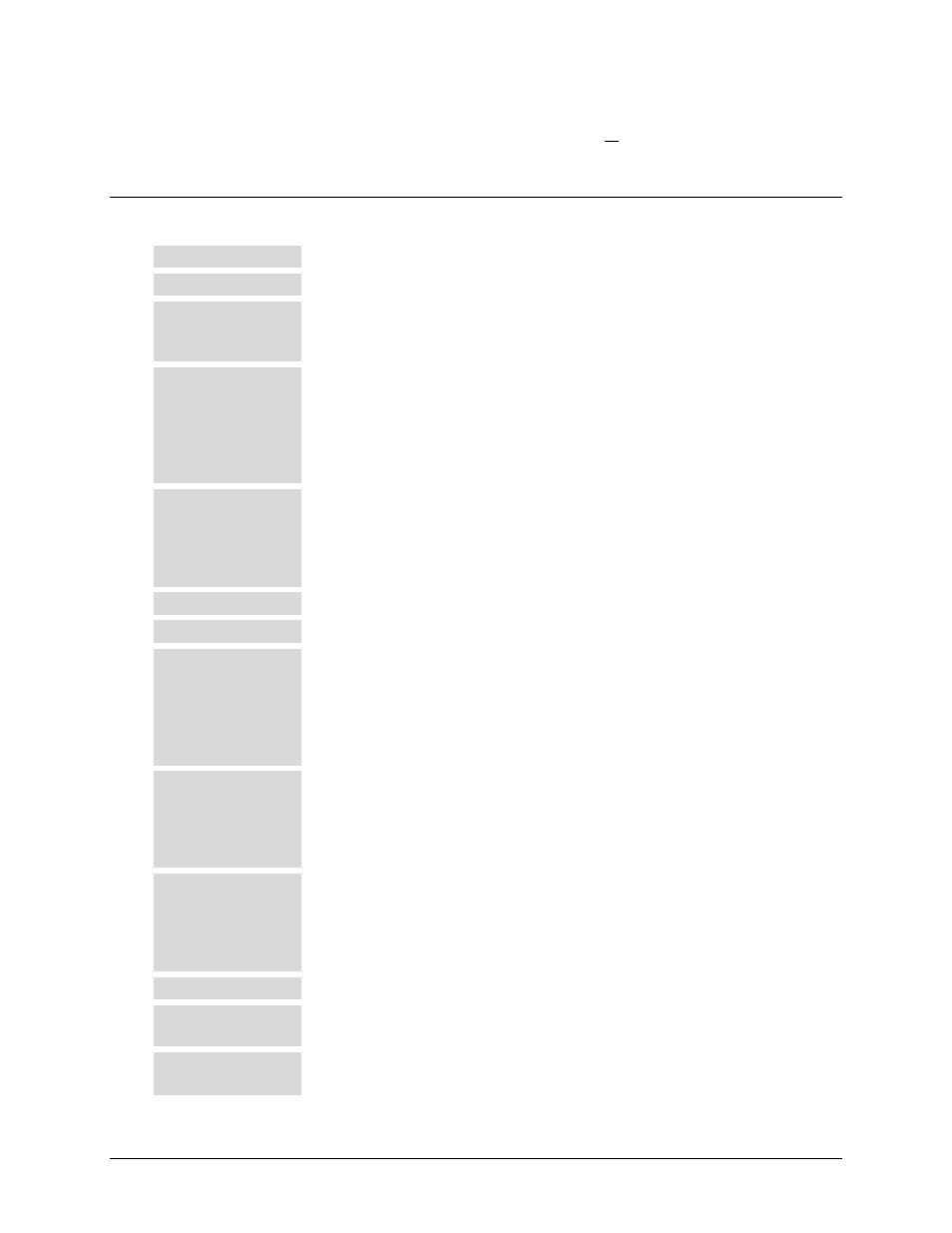4 summary of specifications – Comtech EF Data CRS-150 User Manual
Page 21

CRS-150 1:1 Redundancy Switch
Revision 2
Introduction
MN/CRS150.IOM
1–5
same time, the “On-Line” LED – i.e., the green Unit ‘A’ LED or the yellow Unit ‘B’ LED – will
illuminate on the CRS-150 front panel to indicate which modem is online.
1.4
Summary of Specifications
Equipment Type
1:1 Redundancy Switch
Modems Supported
Comtech EF Data CDM-600 Digital Satellite Modem
Operating Modes
• Fully Automatic
• Manual (via the front panel of the Online Modem, or via the Modem’s remote control
interface)
Architecture
• Full bridging architecture, with configuration synchronization
• Tx Clock and Data signals fed to both Online and Standby units
• Rx IF signal fed to both Online and Standby units
• Continuous fault comparison of Online and Standby units (The configuration of Online
and Standby units is synchronized via the Auxiliary Serial link between the two
Modems)
Switch Conditions
Switchover initiated following:
• Unit faults only, or:
• Unit faults or Receive Traffic Faults, or:
• Unit faults or Transmit Traffic Faults, or:
• Unit faults or Receive or Transmit Traffic Faults
Fault detection time
1 second maximum
Switchover time
Within 0.5 seconds of fault detection
Main Data Interfaces
• RS422/EIA530 DCE (25 pin D-type female, pinout per EIA530) to 10 Mbps
• V.35 DCE to 10 Mbps
• Synchronous RS232 to 300 kbps
• Serial LVDS to 20 Mbps
• A standard HSSI interface is provided with the addition of the optional Comtech CIC-20
LVDS/HSSI Interface Converter module, for operation up to 20 Mbps
G.703 Interfaces
• G.703, T1, E1, T2 and E2, balanced and unbalanced (BNC connectors for 75Ω
unbalanced, and 15 pin D-type for 120Ω balanced)
• Note that for T1 and E1 Drop and Insert applications the unit supports Rx, Tx
connections, as well as Drop Data Out (DDO) and Insert Data In (IDI)
• ‘G.703-like’ signals at 512 kbps and 1024 kbps (through DDO and IDI ports)
Overhead Interface
Intelsat IESS-308/309/310 Open Network overhead signals, including:
• IDR Overhead Data Channels (64 kHz, 8kHz, and Octet clocks)
• IBS ESC and High-Rate ESC
• Balanced External Reference Input
• IDR Backward Alarm Inputs (25 pin D-type male)
Audio
2 x 4-wire 600 Ω audio interface, per Intelsat IESS-308 (9 pin D-type female)
IDR Backward
Alarms
Backward Alarm Outputs BA-1 through BA-4 (Form C relays) per Intelsat IESS-308 (15
pin D-type female)
External Reference
• 75Ω BNC, unbalanced input
• 120Ω balanced input
